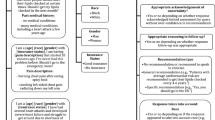Abstract
The increasing use of ChatGPT by the general public has prompted us to assess ChatGPT's performance in health fact-checking and uncover potential biases and risks arising from its utilization. In this study, we employed two publicly accessible datasets to evaluate ChatGPT's performance. We utilized BERTopic for clustering health claims into topics and subsequently employed the gpt-3.5-turbo API for fact-checking these claims. ChatGPT's performance was appraised on multi-class (False, Mixture, Mostly-False, Mostly-True, True) and binary (True, False) levels, with a thorough analysis of its performance across various topics. ChatGPT achieved a F1-score of 0.54 and 0.64 in the multi-class task and 0.88 and 0.85 in the binary task on the two datasets, respectively. In most health topics (e.g., vaccines, Covid-19), ChatGPT's F1-score exceeded 0.8, except for specific topics, such as novel or contentious cancer treatments, which yielded a F1-score below 0.6. We scrutinized the erroneous fact-checking labels and explanations provided by ChatGPT, revealing that it may produce inaccurate results for claims with misleading intent, inaccurate information, emerging research findings, or contentious health knowledge.
Access this chapter
Tax calculation will be finalised at checkout
Purchases are for personal use only
Similar content being viewed by others
References
Nori, H., King, N., McKinney, S.M., et al.: Capabilities of gpt-4 on medical challenge problems. arXiv preprint arXiv: 230313375 (2023)
Singhal, K., Azizi, S,, Tu, T,, et al.: Large Language Models Encode Clinical Knowledge. arXiv preprint arXiv: 221213138 (2022)
Singhal, K., Tu, T., Gottweis, J., et al.: Towards Expert-Level Medical Question Answering with Large Language Models. arXiv preprint arXiv: 230509617 (2023)
Zuccon, G., Koopman, B.: Dr ChatGPT, tell me what I want to hear: How prompt knowledge impacts health answer correctness. arXiv preprint arXiv: 230213793 (2023)
Srba, I., Pecher, B., Tomlein, M., et al.: Monant medical misinformation dataset: mapping articles to fact-checked claims. In: Proceedings of the 45th International ACM SIGIR Conference on Research and Development in Information Retrieval, pp 2949–2959. ACM, Madrid Spain (2022)
Kotonya, N., Toni, F.: Explainable automated fact-checking for public health claims. In: Proceedings of the 2020 Conference on Empirical Methods in Natural Language Processing (EMNLP), pp 7740–7754. Association for Computational Linguistics, Online (2020)
Grootendorst, M.: BERTopic: Neural topic modeling with a class-based TF-IDF procedure (2022)
Author information
Authors and Affiliations
Corresponding author
Editor information
Editors and Affiliations
Rights and permissions
Copyright information
© 2024 The Author(s), under exclusive license to Springer Nature Switzerland AG
About this paper
Cite this paper
Ni, Z., Qian, Y., Vaillant, P., Jaulent, MC., Bousquet, C. (2024). Assessing ChatGPT's Performance in Health Fact-Checking: Performance, Biases, and Risks. In: Stephanidis, C., Antona, M., Ntoa, S., Salvendy, G. (eds) HCI International 2023 – Late Breaking Posters. HCII 2023. Communications in Computer and Information Science, vol 1957. Springer, Cham. https://doi.org/10.1007/978-3-031-49212-9_50
Download citation
DOI: https://doi.org/10.1007/978-3-031-49212-9_50
Published:
Publisher Name: Springer, Cham
Print ISBN: 978-3-031-49211-2
Online ISBN: 978-3-031-49212-9
eBook Packages: Computer ScienceComputer Science (R0)



